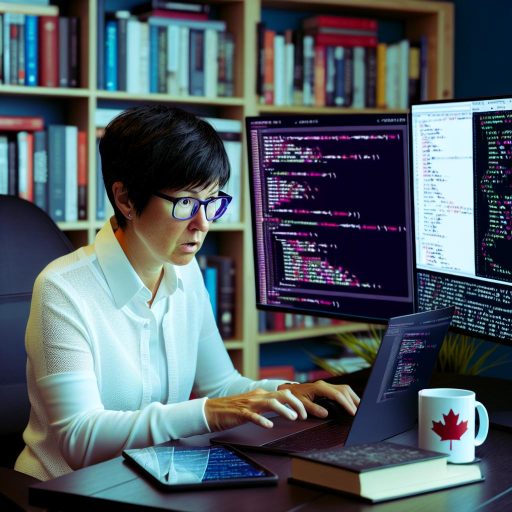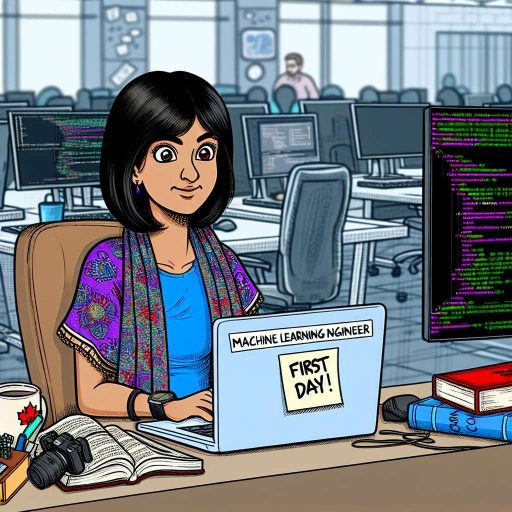Understanding the Blockchain Technology and Its Applications
What is Blockchain?
Blockchain technology is a decentralized digital ledger system.
It securely records transactions across multiple computers.
This feature ensures that records cannot be altered retroactively.
Consequently, users gain a trustworthy transaction environment.
Key Characteristics of Blockchain
Blockchain provides transparency for all participants involved.
It operates on a peer-to-peer network for enhanced security.
Additionally, transactions are time-stamped and immutable.
This design fosters trust and accountability in various interactions.
Applications of Blockchain Technology
Blockchain has numerous applications across different industries.
In finance, it enables secure and fast cross-border payments.
Moreover, it enhances supply chain management through tracking.
Healthcare systems benefit from secure patient data management.
Financial Sector
Cryptocurrencies like Bitcoin and Ethereum are popular blockchain applications.
They facilitate peer-to-peer transactions without intermediaries.
This innovation reduces fees and processing times significantly.
Supply Chain Management
Blockchain improves traceability of products.
It ensures that goods are sourced and transported responsibly.
This transparency boosts consumer trust in products.
Healthcare
In healthcare, blockchain secures patient data and electronic records.
This ensures that sensitive information remains confidential.
Additionally, it streamlines processes and verifies drug authenticity.
Future Potential of Blockchain
The potential for blockchain technology is vast and evolving.
Many industries are exploring its benefits and applications.
For example, real estate transactions can become more efficient.
Moreover, voting systems could become more secure and reliable.
Unlock Your Career Potential
Visualize a clear path to success with our tailored Career Consulting service. Personalized insights in just 1-3 days.
Get StartedConsequently, blockchain is set to revolutionize numerous sectors.
Researching the Blockchain Market in Canada
Current State of the Blockchain Industry
The blockchain industry in Canada is vibrant and rapidly evolving.
Many companies are investing in blockchain technologies.
This trend fosters innovation across various sectors, including finance and healthcare.
Furthermore, Canada ranks among the top countries for blockchain development.
Emerging Opportunities
Blockchain technology opens numerous career opportunities in Canada.
Developers can work on projects ranging from smart contracts to decentralized applications.
Moreover, emerging fields like non-fungible tokens (NFTs) and decentralized finance (DeFi) are gaining popularity.
As a result, demand for skilled blockchain developers continues to rise.
Market Trends
The market trends indicate increased adoption of blockchain solutions.
Many companies are focusing on creating secure and transparent systems.
Additionally, public and private sectors are collaborating to explore blockchain applications.
This collaboration drives new projects and enhances the job market.
Key Players in the Canadian Blockchain Space
Numerous companies are leading the blockchain charge in Canada.
For example, firms like ConsenSys and Element AI focus on blockchain innovations.
Additionally, governments and educational institutions are also investing in blockchain research.
This investment creates a supportive environment for aspiring developers.
Networking and Collaboration Opportunities
Networking is crucial for career growth in the blockchain field.
Various events and conferences are held across Canada to connect professionals.
Moreover, online communities facilitate knowledge sharing and collaboration.
Joining these platforms can provide valuable insights into the market.
Essential Skills Required for a Blockchain Developer
Understanding Blockchain Technology
Blockchain developers must grasp the fundamentals of blockchain technology.
This includes a solid understanding of decentralized systems.
They should be familiar with various blockchain platforms.
Knowledge of consensus algorithms is also crucial.
Proficiency in Programming Languages
Developers need to be skilled in programming languages like Solidity.
Other important languages include JavaScript and Python.
Proficiency in C++ and Go can also be beneficial.
Understanding the nuances of these languages is essential.
Experience with Smart Contracts
Creating and deploying smart contracts is a key responsibility.
Developers must know how to write secure and efficient contracts.
Testing smart contracts thoroughly is equally important.
Security vulnerabilities must be identified and mitigated.
Knowledge of Cryptography
Cryptography forms the backbone of blockchain security.
Developers should understand cryptographic principles and protocols.
They need knowledge of public and private key encryption.
Familiarity with hashing algorithms is also essential.
Familiarity with Frameworks and Tools
Developers benefit from experience with blockchain frameworks.
They should know tools like Truffle and Ganache.
Development environments facilitate testing and deployment.
Understanding these tools speeds up the development process.
Collaboration and Problem-Solving Skills
Blockchain projects often require teamwork and collaboration.
Effective communication with team members is crucial.
Problem-solving skills help tackle complex challenges.
Developers must adapt to rapidly changing technologies.
Explore Further: How Machine Learning Engineers Impact Canadian Businesses
Educational Pathways
Relevant Degrees for Blockchain Development
A degree in computer science is a strong foundation for a blockchain developer.
This degree offers essential programming and software development skills.
Moreover, a specialization in information technology can enhance your technical knowledge.
A degree in mathematics can also be beneficial for understanding blockchain algorithms.
Additionally, pursuing a degree in cryptography will give you an edge in blockchain security.
Certifications to Consider
Industry-recognized certifications can significantly boost your employability.
The Certified Blockchain Developer certification is highly regarded.
Another valuable certification is offered by the Blockchain Council.
This certification covers various aspects of blockchain technology.
Moreover, the Certified Ethereum Developer accreditation is helpful for Ethereum blockchain enthusiasts.
Consider the Blockchain Fundamentals certification by UC Berkeley for a broader perspective.
Online Courses and Bootcamps
Many online platforms offer targeted courses for blockchain development.
Coursera has partnerships with top universities for blockchain courses.
edX provides a range of blockchain-related programs from reputable institutions.
Also, coding bootcamps specifically focused on blockchain are gaining popularity.
These bootcamps often provide practical, hands-on experience.
Look for programs with partnerships to help you land internships or job placements.
Importance of Continuous Learning
The blockchain technology landscape is constantly evolving.
Therefore, continuous learning is essential for staying relevant.
Attend online webinars and workshops to sharpen your skills.
Joining blockchain communities can also facilitate knowledge sharing.
Engaging with open-source projects allows you to gain practical experience.
Additionally, consider attending conferences to network and learn from experts.
Learn More: How To Start A Career As A Data Scientist In Canada
Building a Strong Portfolio: Projects and Contributions to Open Source
Importance of a Portfolio
A well-crafted portfolio showcases your skills and projects.
It provides tangible evidence of your capabilities.
Employers often seek portfolios when hiring developers.
Furthermore, a strong portfolio differentiates you from others.
Choosing Projects Wisely
Select projects that demonstrate various skills.
For example, focus on both frontend and backend development.
Additionally, consider projects that utilize different blockchain technologies.
Smart contracts, decentralized applications, and token creation are good options.
Contributing to Open Source
Open source contributions can enhance your portfolio.
First, find projects relevant to your interests.
Platforms like GitHub host many open source initiatives.
Moreover, contributing to established projects builds credibility.
Documenting Your Work
Each project should include thorough documentation.
Explain your thought process and coding decisions clearly.
This not only helps others understand your work but also highlights your communication skills.
Use visuals like screenshots or flowcharts to enhance the documentation.
Showcasing Your Portfolio
Once your portfolio is complete, consider how to present it.
Build a personal website to host your projects.
This demonstrates professionalism and technical prowess.
Include links to your GitHub and other relevant platforms.
Explore Further: Top Programming Languages for Blockchain Development

Networking in the Blockchain Community
Importance of Networking
Networking is crucial for aspiring blockchain developers.
It helps you build relationships in the industry.
Connections can lead to job opportunities and collaborations.
Moreover, networking provides access to valuable resources.
Meetups
Attend local blockchain meetups to expand your network.
These gatherings offer a platform to meet like-minded individuals.
Furthermore, you can learn from experienced professionals.
Consider sharing your own knowledge to contribute.
Be proactive in engaging with attendees.
- Blockchain Developers Vancouver
- Toronto Blockchain Community
- Calgary Blockchain Meetup
Conferences
Participating in blockchain conferences is essential.
These events bring together industry leaders and innovators.
Take the opportunity to attend workshops and sessions.
Networking at conferences can lead to mentorships and internships.
- Canadian Blockchain Summit
- Blockchain Expo North America
- Blockchain & Cryptocurrency Conference
Online Forums
Join online forums to connect with the blockchain community.
Platforms like Reddit and Discord host vibrant discussions.
Engage in conversations and ask questions.
Participating in online events or webinars can also be beneficial.
- BitcoinTalk Forum
- r/Blockchain on Reddit
- Discord channels focusing on blockchain development
Leveraging Social Media
Utilize social media to connect with blockchain professionals.
LinkedIn is particularly effective for professional networking.
Share your thoughts on industry developments and projects.
Follow influencers and engage with their content.
Additionally, Twitter can be a great platform for updates.
Gain More Insights: The Difference Between Blockchain Developers and Engineers
Preparing for Job Interviews: Common Questions and Technical Assessments
Overview of the Interview Process
Interviews for blockchain developer positions typically involve multiple stages.
Employers may conduct initial phone screenings.
In-person or virtual interviews often follow.
Candidates should prepare for both technical and behavioral questions.
Common Behavioral Questions
Interviewers frequently ask about past experiences.
Expect questions like, “Can you describe a challenging project?”
Employers value teamwork, so prepare to discuss collaboration.
Additionally, be ready to talk about how you approach problem-solving.
Illustrating your passion for blockchain technology is crucial.
Technical Questions to Expect
Technical assessments will evaluate your coding skills.
Common topics include smart contracts, decentralized applications, and blockchain architecture.
Prepare to solve coding problems live during the interview.
Familiarize yourself with relevant programming languages like Solidity and JavaScript.
Technical Assessments and Coding Challenges
Many interviews include coding challenges to test your skills.
These assessments often focus on practical applications of blockchain technology.
Practice on platforms like LeetCode and HackerRank to enhance your abilities.
Understanding data structures and algorithms is vital for success.
Preparing for Live Coding Interviews
In live coding interviews, communicate your thought process clearly.
Employers want to see how you approach problem-solving.
Take your time and think out loud while coding.
Don’t hesitate to ask clarifying questions if you’re unsure.
Researching the Company and Its Projects
Before your interview, research the company thoroughly.
Understand its products and services related to blockchain.
Familiarize yourself with the team you may be joining.
Being informed shows your genuine interest in the role.
Practicing Mock Interviews
Consider conducting mock interviews with peers or mentors.
This practice can help reduce anxiety and improve your performance.
Online platforms offer simulated interview experiences.
Recording your answers can aid in identifying areas for improvement.
Continuing Education and Staying Updated with Blockchain Innovations
The Importance of Lifelong Learning
Blockchain technology evolves rapidly, making continuous education essential.
Developers must stay informed to remain competitive in the field.
Lifelong learning enables you to adapt to new challenges and opportunities.
Online Courses and Resources
Numerous online platforms offer courses tailored for blockchain development.
Websites like Coursera, Udemy, and edX feature programs by industry experts.
These courses help build foundational knowledge and advanced skills.
Additionally, many universities are now offering specialized blockchain programs.
Joining Developer Communities
Participating in blockchain communities fosters knowledge sharing and networking.
Platforms like GitHub, Stack Overflow, and Reddit are excellent resources.
You can connect with experienced developers and ask questions about projects.
These interactions lead to collaborative learning and innovation.
Attending Conferences and Meetups
Blockchain conferences offer unique opportunities for immersive learning.
Industry events attract leading experts who share insights and advancements.
Local meetups also provide chances to connect with peers in your area.
Engaging with the community helps you stay updated on the latest trends.
Reading Blogs and Journals
Following reputable blockchain blogs and journals enhances your expertise.
Sources like CoinDesk, Blockchain Journal, and Medium cover current topics.
Regular reading keeps you informed about innovations and best practices.
Writing your own blog posts can solidify your understanding and showcase your expertise.
Hands-on Experience
Practical experience is vital for mastering blockchain technology.
Consider working on personal projects or contributing to open-source initiatives.
Building decentralized applications (dApps) or smart contracts can deepen your skills.
Also, participating in hackathons allows you to collaborate and experiment.
Additional Resources
How much $ are you making in cybersecurity? : r/cybersecurity
Rakshit Rekhi – Blockchain infrastructure/consulting services – Self …




